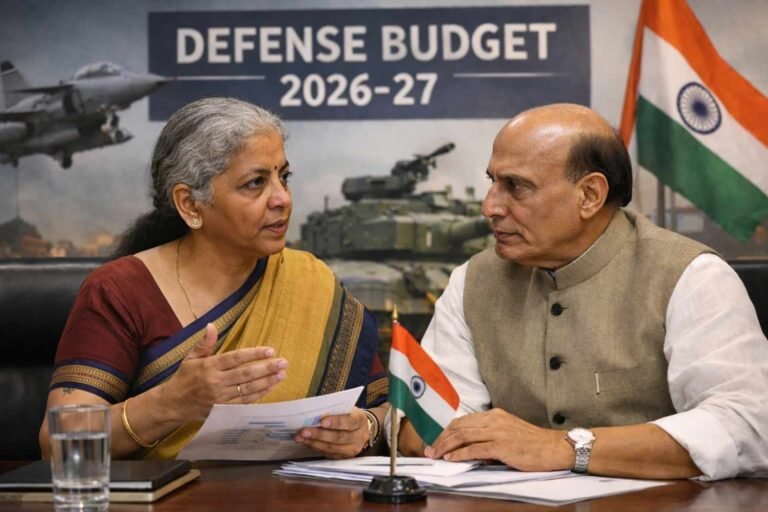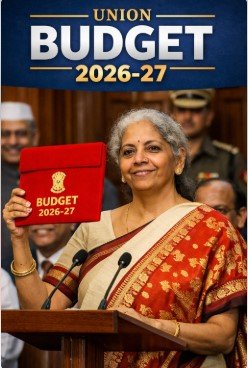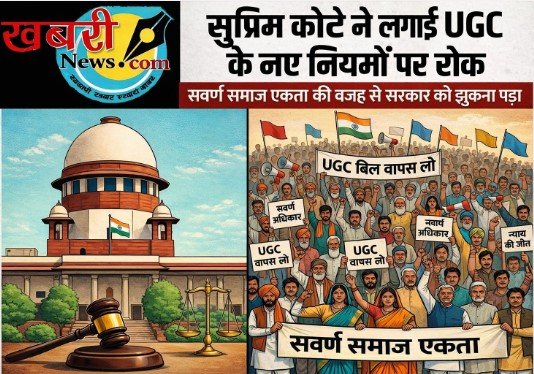
Waqf Amendment Bill 2025
वक़्फ़ संपत्तियाँ भारत में इस्लामिक धर्मार्थ कार्यों और समाज कल्याण के लिए महत्वपूर्ण रही हैं। इन्हें वक़्फ़ अधिनियम 1995 के तहत संचालित किया जाता है। हालांकि, समय के साथ इन संपत्तियों के प्रबंधन में पारदर्शिता और प्रशासनिक सुधार की आवश्यकता महसूस की गई। इसी संदर्भ में, वक़्फ़ (संशोधन) विधेयक 2025 को पेश किया गया है, जो वक़्फ़ संपत्तियों के प्रशासन और प्रबंधन को आधुनिक और प्रभावी बनाने का प्रयास करता है।
वक़्फ़ का महत्व और मौजूदा स्थिति
वक़्फ़ संपत्तियाँ धार्मिक, सामाजिक और शैक्षणिक उद्देश्यों के लिए उपयोग की जाती हैं। भारत में हजारों ऐसी संपत्तियाँ हैं, जिनकी देखरेख केंद्र और राज्य वक़्फ़ बोर्डों द्वारा की जाती है। हालांकि, वर्षों से वक़्फ़ संपत्तियों पर अतिक्रमण, कुप्रबंधन, और कानूनी विवादों की समस्याएँ सामने आती रही हैं।
वक़्फ़ (संशोधन) विधेयक 2025 के प्रमुख प्रावधान
इस संशोधन में वक़्फ़ प्रबंधन को अधिक संगठित और पारदर्शी बनाने के लिए कई महत्वपूर्ण परिवर्तन किए गए हैं।
- वक़्फ़ बोर्डों में गैर-मुस्लिम सदस्यों का समावेश
- पहली बार, वक़्फ़ बोर्डों में गैर-मुस्लिम सदस्यों को भी शामिल करने का प्रस्ताव है।
- सरकार का तर्क है कि इससे प्रशासनिक पारदर्शिता बढ़ेगी।
- हालांकि, इस प्रस्ताव का मुस्लिम संगठनों द्वारा विरोध किया जा रहा है, क्योंकि इसे वक़्फ़ बोर्ड की स्वायत्तता में हस्तक्षेप माना जा रहा है।
- ‘वक़्फ़ बाय यूज़र’ अवधारणा का उन्मूलन
- पहले, यदि कोई संपत्ति लंबे समय से धार्मिक उद्देश्यों के लिए इस्तेमाल हो रही थी, तो उसे वक़्फ़ संपत्ति घोषित किया जा सकता था।
- संशोधन के तहत, अब इसे हटाया गया है, जिससे संपत्तियों के स्वामित्व को लेकर विवाद कम होने की संभावना है।
- संपत्तियों की पंजीकरण प्रक्रिया को मजबूत बनाना
- अब सभी वक़्फ़ संपत्तियों को एक डिजिटल डेटाबेस में पंजीकृत करना अनिवार्य होगा।
- यह प्रक्रिया संपत्ति के रिकॉर्ड को सुरक्षित करने और पारदर्शिता सुनिश्चित करने के लिए की गई है।
- सीमा अधिनियम 1963 का अनुप्रयोग
- वक़्फ़ संपत्तियों से जुड़े विवादों को शीघ्र निपटाने के लिए, इस पर सीमा अधिनियम लागू किया जाएगा।
- इससे वर्षों तक लंबित कानूनी मामलों का समाधान जल्द होने की उम्मीद है।
- उत्तराधिकार अधिकारों की सुरक्षा
- संशोधन में यह प्रावधान किया गया है कि वक़्फ़ संपत्ति घोषित करने से पहले उत्तराधिकारियों के अधिकार सुरक्षित रखे जाएँ।
- महिलाओं, विधवाओं और बच्चों के कानूनी अधिकारों की रक्षा के लिए विशेष प्रावधान किए गए हैं।
- जनजातीय भूमि की सुरक्षा
- संविधान की अनुसूची V और VI के अंतर्गत आने वाली जनजातीय भूमि को वक़्फ़ घोषित करने पर रोक लगाई गई है।
- यह प्रावधान जनजातीय समुदायों की संपत्तियों को सुरक्षित रखने के लिए जोड़ा गया है।
संशोधन विधेयक पर संसद में बहस
विधेयक पर संसद में लंबी बहस हुई।
- सरकार का पक्ष: यह संशोधन वक़्फ़ संपत्तियों के बेहतर प्रबंधन और पारदर्शिता को बढ़ाने के लिए आवश्यक है।
- विपक्ष और मुस्लिम संगठनों का विरोध: इसे मुस्लिम समुदाय के धार्मिक मामलों में हस्तक्षेप बताया जा रहा है।
संशोधन के संभावित प्रभाव
इस विधेयक के पारित होने के बाद निम्नलिखित प्रभाव देखे जा सकते हैं:
- प्रशासनिक सुधार: बोर्डों में विविधता आने से प्रबंधन अधिक कुशल हो सकता है।
- कानूनी सुरक्षा: उत्तराधिकारियों के अधिकार सुनिश्चित होने से संपत्तियों से जुड़े विवाद कम होंगे।
- धार्मिक स्वायत्तता पर असर: गैर-मुस्लिम सदस्यों की नियुक्ति से मुस्लिम समुदाय की धार्मिक स्वतंत्रता पर प्रभाव पड़ सकता है।
वक़्फ़ (संशोधन) विधेयक 2025 भारत में वक़्फ़ संपत्तियों के प्रशासन को नया स्वरूप देने का प्रयास है। हालांकि, इस पर मतभेद जारी हैं। सरकार को चाहिए कि वह मुस्लिम समुदाय की चिंताओं को ध्यान में रखते हुए इस विधेयक को लागू करे, ताकि सभी पक्षों का संतुलन बना रहे।
Introduction to the Waqf System
The concept of Waqf has deep historical roots within Islamic tradition, serving not only as an instrument of religious and charitable expression but also as a pivotal element of Islamic finance and community welfare. Waqf, often translated as “endowment,” refers to the dedicated allocation of property—be it real estate, money, or other valuable assets—for charitable purposes. This practice dates back to the time of Prophet Muhammad, who encouraged the establishment of Waqf as a means to support social welfare initiatives and foster a sense of communal responsibility.
The mechanisms of establishing a Waqf involve a formal declaration by the founder, followed by the registration of the asset intended to serve the communal good. The properties designated as Waqf are managed by appointed trustees, or mutawallis, who are charged with the responsibility of overseeing their upkeep and ensuring that the income generated is utilized for the intended charitable purposes. This could encompass a range of socio-economic activities such as building schools, providing healthcare services, and supporting the poor and marginalized sections of society.
The role of Waqf in community development is immense. It acts as a sustainable model for funding essential services, alleviating poverty, and promoting education and health. Moreover, Waqf plays a crucial role in Islamic finance, enabling the creation of wealth that can be reinvested into the community for further enhancement of social welfare projects. However, despite the significant contributions of Waqf to public welfare, there is a pressing need for legislative reforms to better regulate these properties and ensure their optimal utilization.
The Waqf Amendment Bill 2025 seeks to address these issues by proposing reforms designed to enhance transparency, efficiency, and accountability in the management of Waqf properties. Through this legislative effort, the aim is to bolster the effectiveness of Waqf in serving the community, thereby positioning it as a more potent vehicle for social change and economic development.
Key Features of the Waqf Amendment Bill 2025
The Waqf Amendment Bill 2025 represents a pivotal step in reforming the governance and operational frameworks of Waqf boards across the country. One of the bill’s primary features is the overhaul of the governance structure of these boards. This amendment proposes the establishment of a more streamlined governance model, reducing bureaucratic layers, and enhancing the efficiency of decision-making processes. The introduction of a more representative body aims to include diverse stakeholder input, ensuring that the interests of different community segments are adequately represented.
Another significant change is the revision of financial management practices associated with Waqf properties. The bill prescribes stringent guidelines to ensure proper management of finances, including provisions for regular audits and transparent reporting mechanisms. By mandating that Waqf boards maintain comprehensive financial records and submit them for public scrutiny, the bill seeks to bolster accountability and reduce the potential for corruption. This improvement in financial oversight is expected to restore public confidence in the management of Waqf assets, enhancing their operational sustainability.
Furthermore, the bill emphasizes the importance of transparency in all dealings related to Waqf properties. Initiatives aimed at increasing the accessibility of information to the community are a core component of the amendment. By promoting clarity in communication, stakeholders are empowered to engage more actively in the governance processes relating to Waqf. Additionally, it establishes a framework for community involvement, allowing for feedback and participatory decision-making regarding Waqf projects and services.
In essence, the Waqf Amendment Bill 2025 is designed not only to reform the operational protocols of Waqf boards but also to enhance service delivery to the community. By focusing on improved governance, financial integrity, and transparency, the legislation aims to create an environment where Waqf properties can be managed more effectively, ultimately benefiting the communities they serve.
Implications of the Waqf Amendment Bill 2025
The Waqf Amendment Bill 2025 introduces a set of changes that will significantly impact various stakeholders, including Waqf boards, donors, and beneficiaries. One of the primary implications of this legislation is the potential for enhanced operational efficiency within Waqf institutions. By streamlining processes and providing clearer guidelines for governance, the Bill aims to improve how Waqf assets are managed. This could lead to more effective utilization of resources, ultimately benefiting the communities reliant on these institutions.
On the positive side, increased transparency and accountability measures suggested in the Bill are likely to foster greater confidence among donors and the general public. With clearer reporting and monitoring systems in place, stakeholders may feel more assured that contributions will be used appropriately and that the Waqf properties are being managed responsibly. Consequently, this could lead to an uptick in donations and support for various charitable causes tied to Waqf institutions.
However, this legislation may also present certain challenges. For instance, the implementation of new regulations may require Waqf boards to adapt quickly, which might initially disrupt ongoing operations. Furthermore, while increased scrutiny can enhance accountability, it may also deter potential donors who prefer less bureaucratic oversight. The balance between encouraging community engagement and maintaining efficient management will thus be critical in the Bill’s application.
Additionally, the amendments may have wider implications for public policy. As Waqf institutions become more integrated into the governance framework of social welfare initiatives, this could open the door for increased governmental involvement in Waqf matters. Such changes can shape public perception regarding the role of Waqf assets in community development. Ultimately, these developments underscore the importance of continual dialogue between stakeholders to ensure that the goals of the Waqf Amendment Bill 2025 are met effectively.
Conclusion and Future Directions
In summarizing the key aspects of the Waqf Amendment Bill 2025, it becomes apparent that this legislative change represents a significant step towards modernizing the Waqf system. The Bill seeks to rectify longstanding inefficiencies and ensure that Waqf properties serve their intended purposes effectively. One of the primary takeaways is the emphasis on transparency and accountability, which are crucial for restoring public trust in the management of Waqf assets. By mandating rigorous oversight and reporting mechanisms, the Bill aims to protect these communal resources from mismanagement.
Moreover, the Waqf Amendment Bill 2025 encourages the active participation of community stakeholders in decision-making processes. This shift towards inclusivity is vital, as it aligns with the fundamental objectives of Waqf to serve society comprehensively. Future reforms must continue to engage with grassroots organizations, beneficiaries, and experts to ensure that evolving community needs are met. Their involvement will not only enhance the effectiveness of the Waqf system but also foster a sense of ownership and responsibility among community members.
Looking ahead, it is essential that ongoing dialogue persists among all stakeholders involved—government entities, non-profit organizations, and local communities. This collaborative effort will be paramount in addressing potential challenges that may arise from the implementation of the Bill. Furthermore, there is a significant opportunity for further reforms aimed at leveraging technology to improve Waqf management. Innovative solutions like digital asset tracking can enhance transparency and efficiency in administering Waqf properties.
Ultimately, sustained advocacy for optimal reforms in the Waqf sector remains critical. By continuously striving for improvements and embracing the principles of good governance, the Waqf system can truly fulfill its purpose of benefiting society at large, ensuring that its resources are utilized effectively for generations to come.






